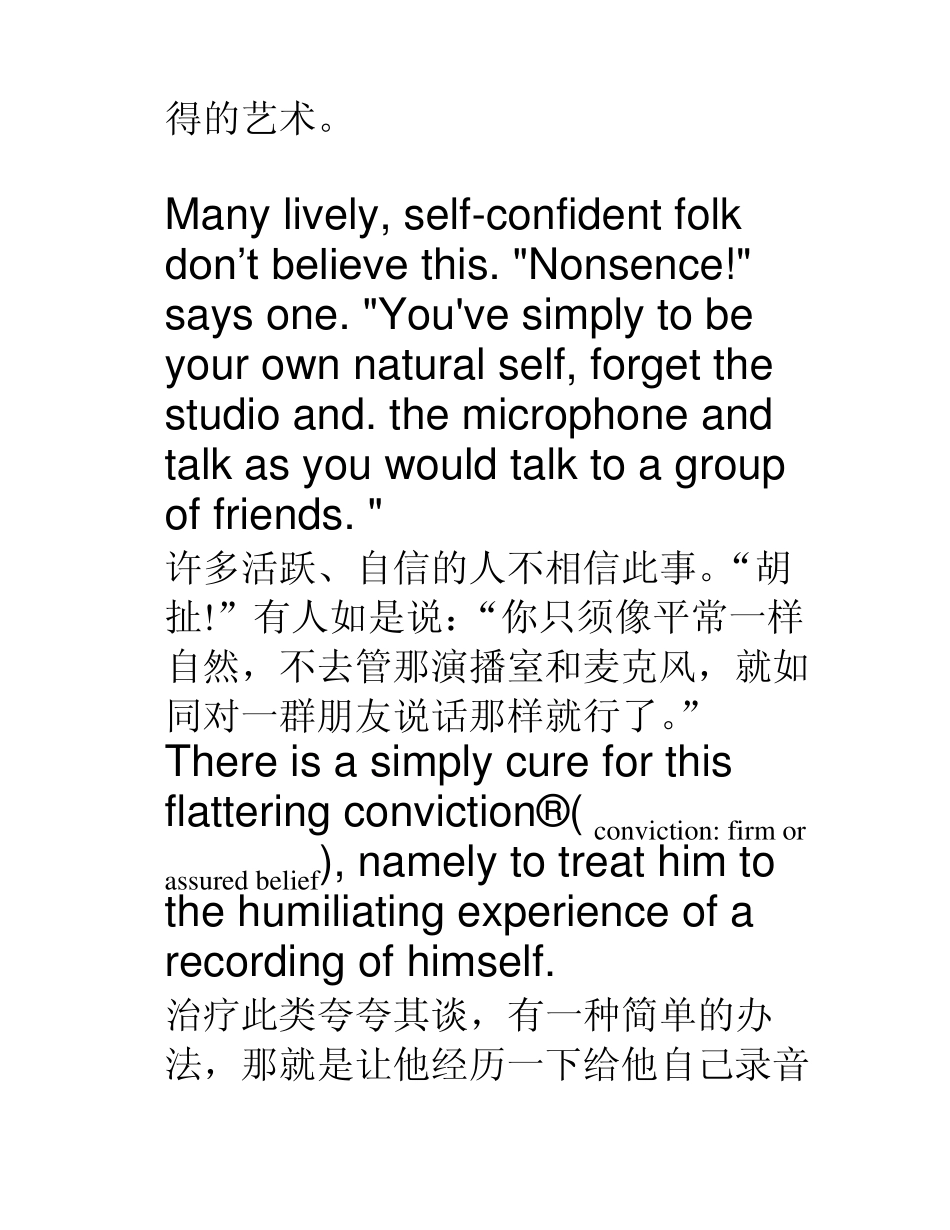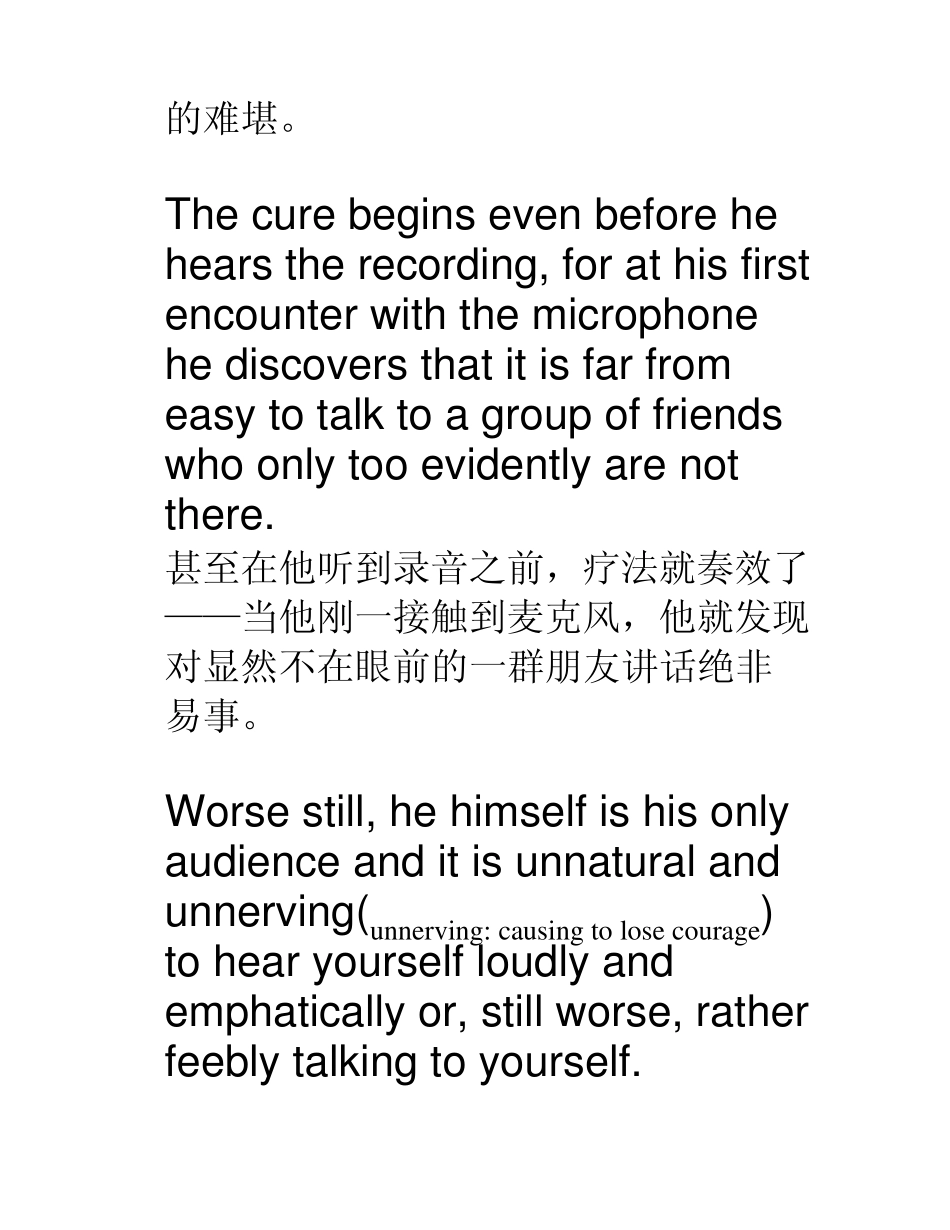<第五课教案 (一) 课文讲解 赏析 (二) 理解与翻译 (三) 补充材料 :上下文 The Art of Listening< Martin Armstrong There are few people, I imagine , except those who are already good lecturers of orators® ( orator: person w ho makes speeches, esp. a good speaker), to whom speaking on the wireless comes naturally. 除了老练、出色的院校讲师或演说家,我料想极少有人能在无线电播音机前自自然然地讲话。 Like acting, it is an art which must be patiently acquired. 如同表演,这是一门须耐心磨练才能获得的艺术。 Many lively, self-confident folk don’t believe this. "Nonsence!" says one. "You've simply to be your own natural self, forget the studio and. the microphone and talk as you would talk to a group of friends. " 许多活跃、自信的人不相信此事。“胡扯!”有人如是说:“你只须像平常一样自然,不去管那演播室和麦克风,就如同对一群朋友说话那样就行了。” There is a simply cure for this flattering conviction® ( conv iction: firm or assu red belief), namely to treat him to the humiliating experience of a recording of himself. 治疗此类夸夸其谈,有一种简单的办法,那就是让他经历一下给他自己录音的难堪。 The cure begins even before he hears the recording, for at his first encounter with the microphone he discovers that it is far from easy to talk to a group of friends who only too evidently are not there. 甚至在他听到录音之前,疗法就奏效了——当他刚一接触到麦克风,他就发现对显然不在眼前的一群朋友讲话绝非易事。 Worse still, he himself is his only audience and it is unnatural and unnerving(u nnerv ing: cau sing to lose cou rage) to hear yourself loudly and emphatically or, still worse, rather feebly talking to yourself. 更不如意的是,他本人便是他自己的唯一听众,听到自己大声地,加重语气地或者软弱无力地(后者更糟)说话,不仅使人感到不自然,而且使人丧失勇气。 And when it comes to lis...


